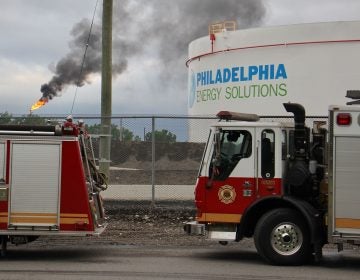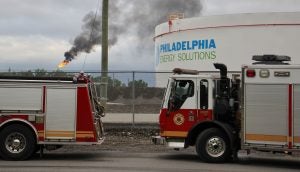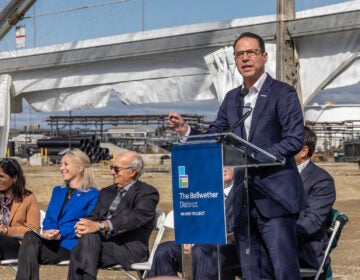Activists take over meeting on Philly refinery cleanup, demand public involvement
Tired of being left out of the process, protesters refused to let public meetings on cleaning up the refinery site move ahead.
Listen 1:30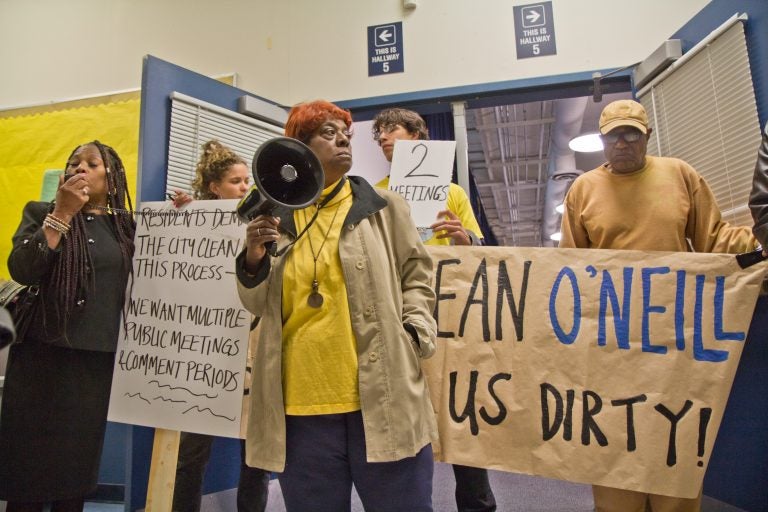
South Philly resident Carol White and other members of Philly Thrive block the entrance to a public meeting about the refinery Thursday evening. (Kimberly Paynter/WHYY)
Updated 10:45 a.m.
—
Activists took over a public meeting on the cleanup of the shuttered Philadelphia Energy Solutions refinery site on Thursday evening, arguing they were left out of the process. First, they blocked the entrance, then entered an almost empty auditorium singing chants and giving testimony on how the refinery has affected their health.
“Enough is enough, I don’t want to see my children die,” said Sylvia Bennet, a neighbor of the South Philadelphia refinery.
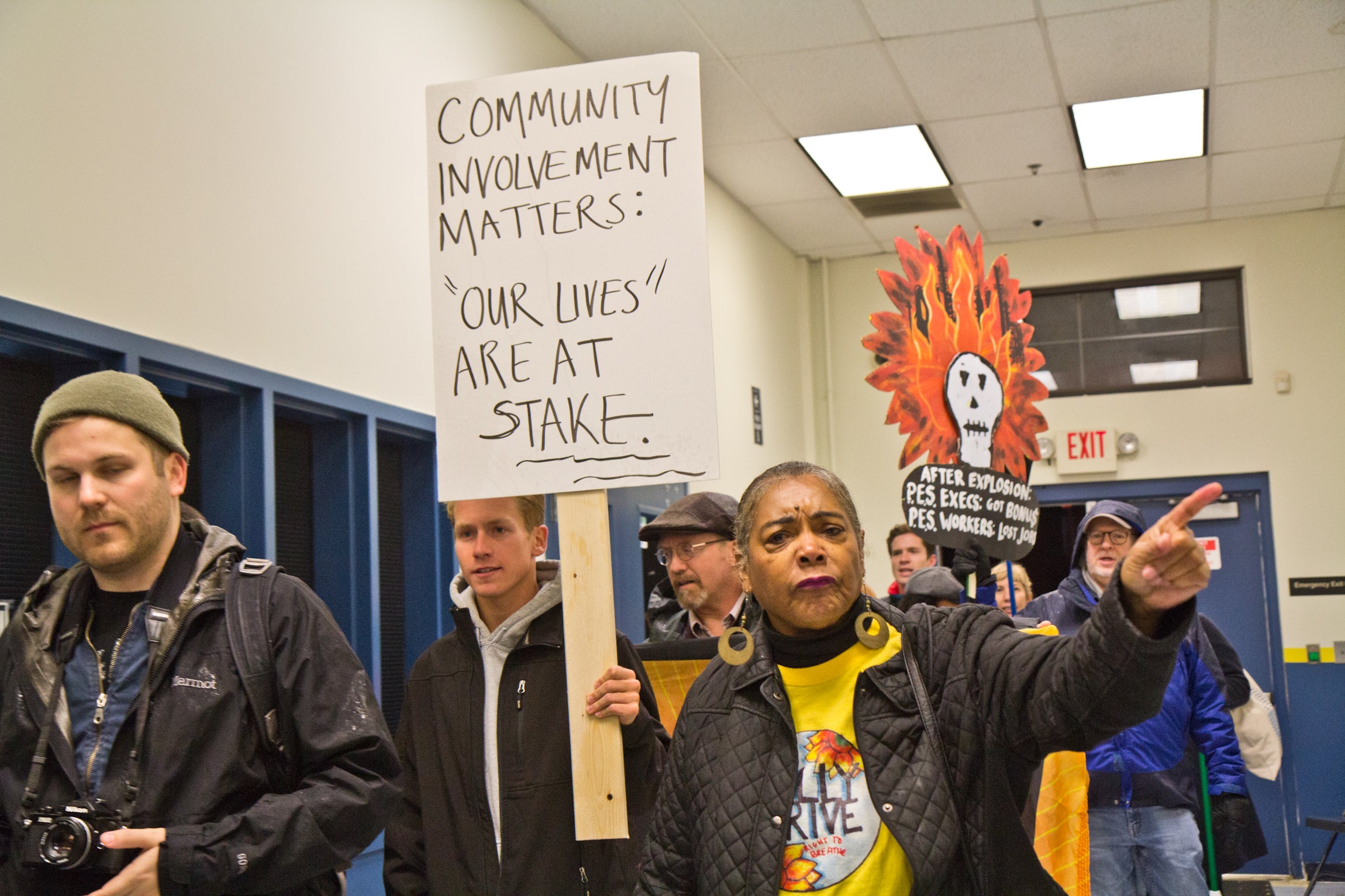
But the meeting was not about the fire that shut down the refinery in June, sending about 60,000 pounds of hydrocarbons and 3,271 pounds of dangerous hydrofluoric acid into the atmosphere. And it wasn’t a part of the public meetings held by the city’s Refinery Advisory Group, which is due to release a final report this month.
Thursday’s meeting was called to discuss past contamination of the site, for which Sunoco — which owned the site from 1988 to 2012 — is responsible.
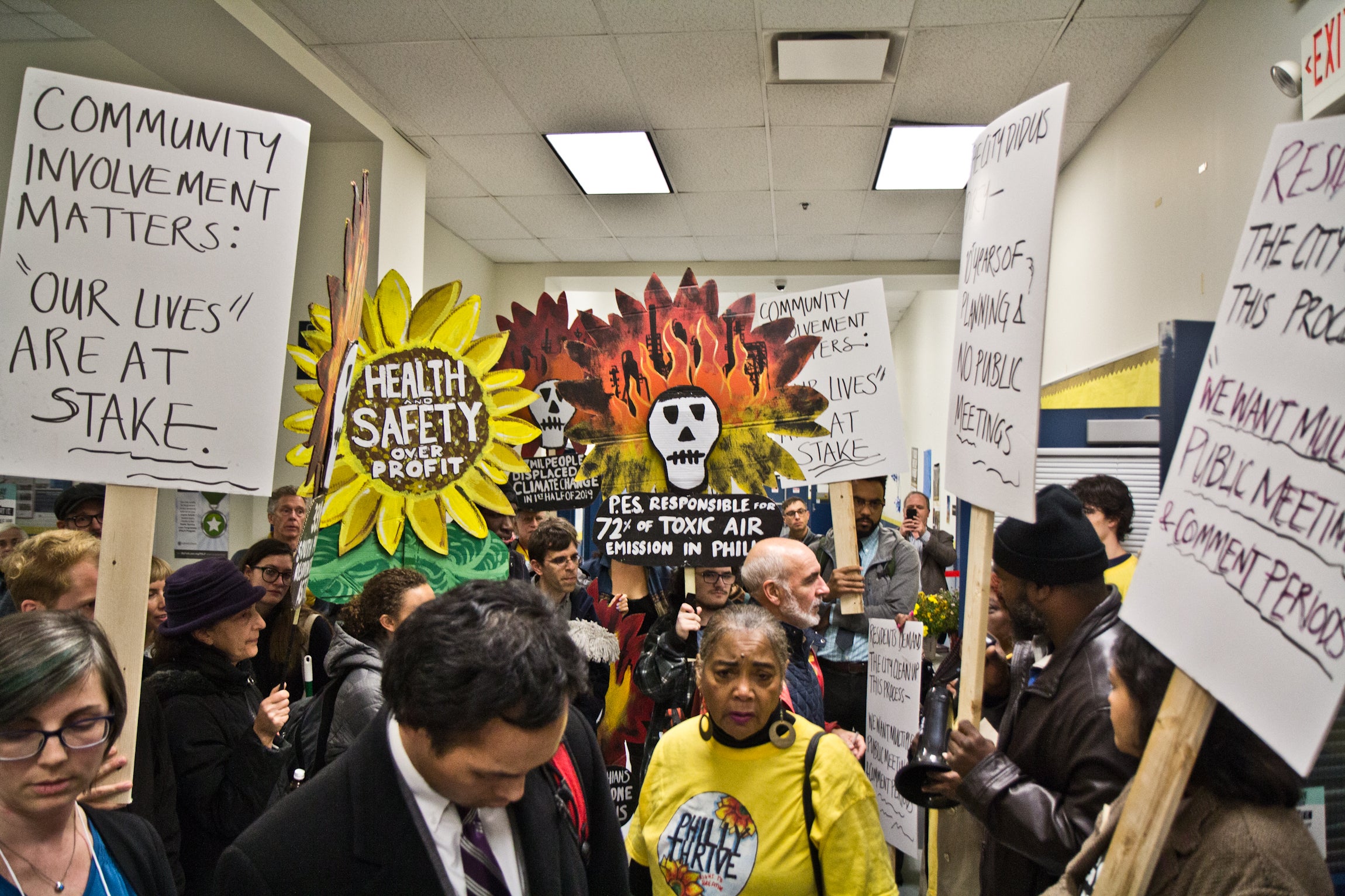
Sunoco has been in the process of remediating the site for 26 years, under the supervision of the Pennsylvania Department of Environmental Protection and the Environmental Protection Agency. But it failed to involve the community on its planning process, which is required by Pennsylvania’s Land Recycling Program, commonly referred to as Act 2.
Thursday’s meeting was the first one in the last 12 years of cleanup process. Only eight residents attended the previous meeting.
Neighbor Shawmar Pitts said the invitation to participate is coming too late.
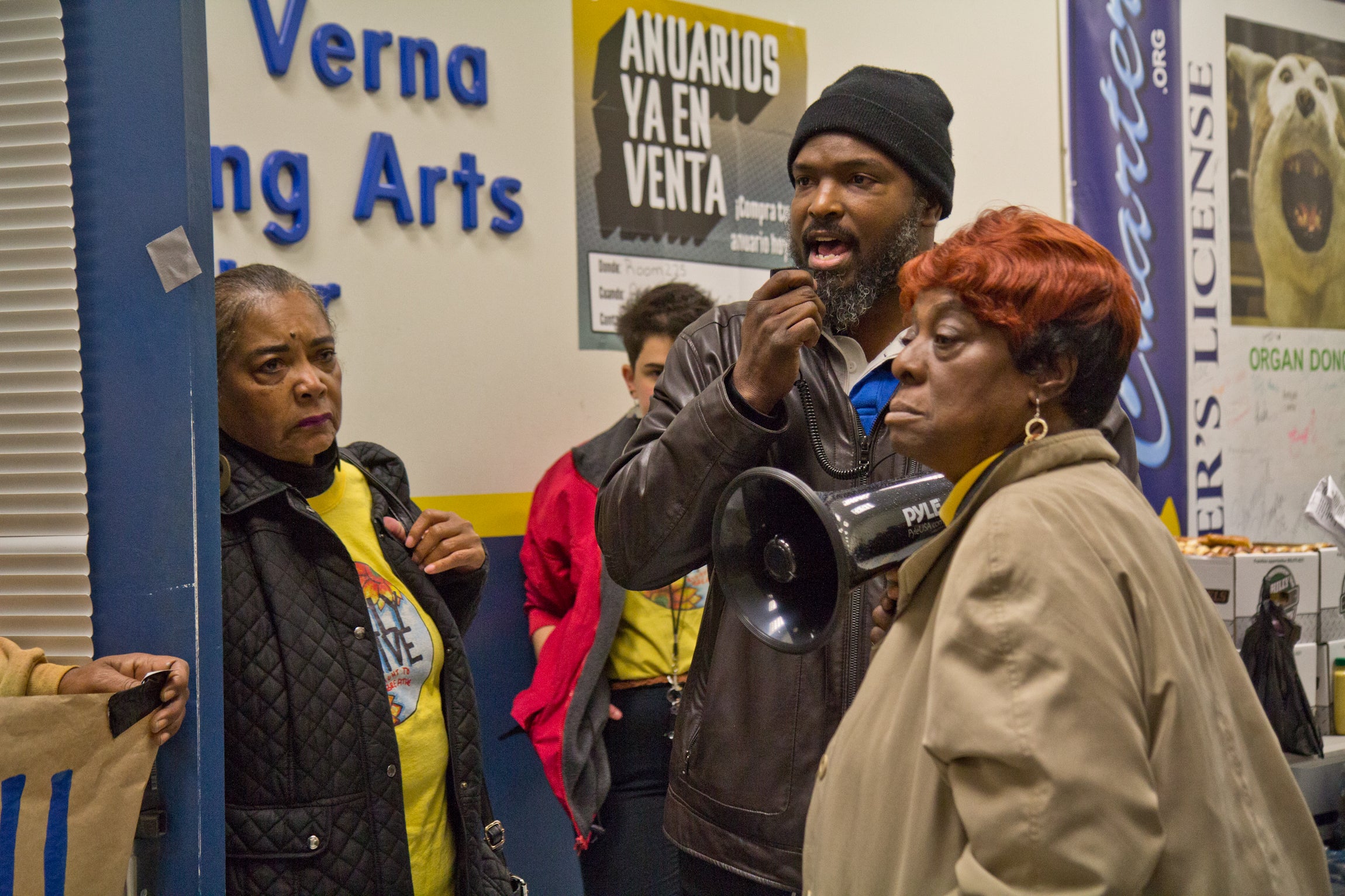
“Ain’t no meeting going on if you’re not going to do it the way it’s supposed to be done. We were supposed to be part of the process — we’re going to be part of the process or ain’t going to be no process,” Pitts said.
Evergreen Resources, the subsidiary conducting the cleanup for Sunoco (now known as Energy Transfer), was planning on having two public meetings with a public comment period in between. But residents argue that’s too little time to review dozens of technical documents and understand the regulations, what Sunoco has been doing so far, and what are they missing.
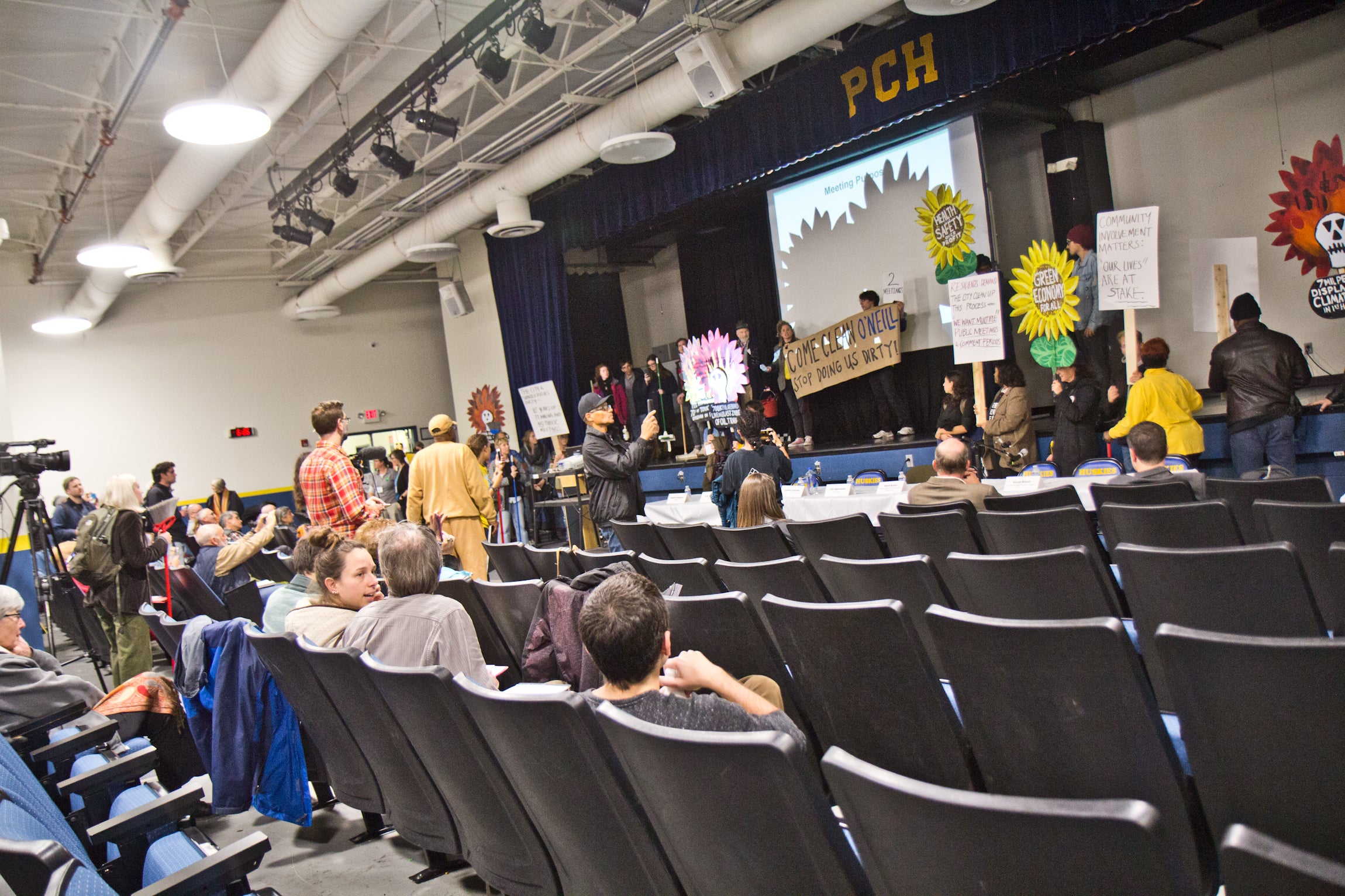
Different companies have operated refineries at the site since 1866, with very little regulation until the 1970s. Both the soil and groundwater have been heavily contaminated with petroleum hydrocarbons that have negative effects on human health, including benzene, lead, toluene, ethylbenzene, xylene, and other toxic compounds. Some contaminants have migrated off the site, potentially affecting a drinking-water aquifer used by New Jersey.
Patrick O’Neill, the city’s deputy solicitor, said the meeting was set up to present the environmental investigations and remediation activities conducted by Evergreen for the last several years.
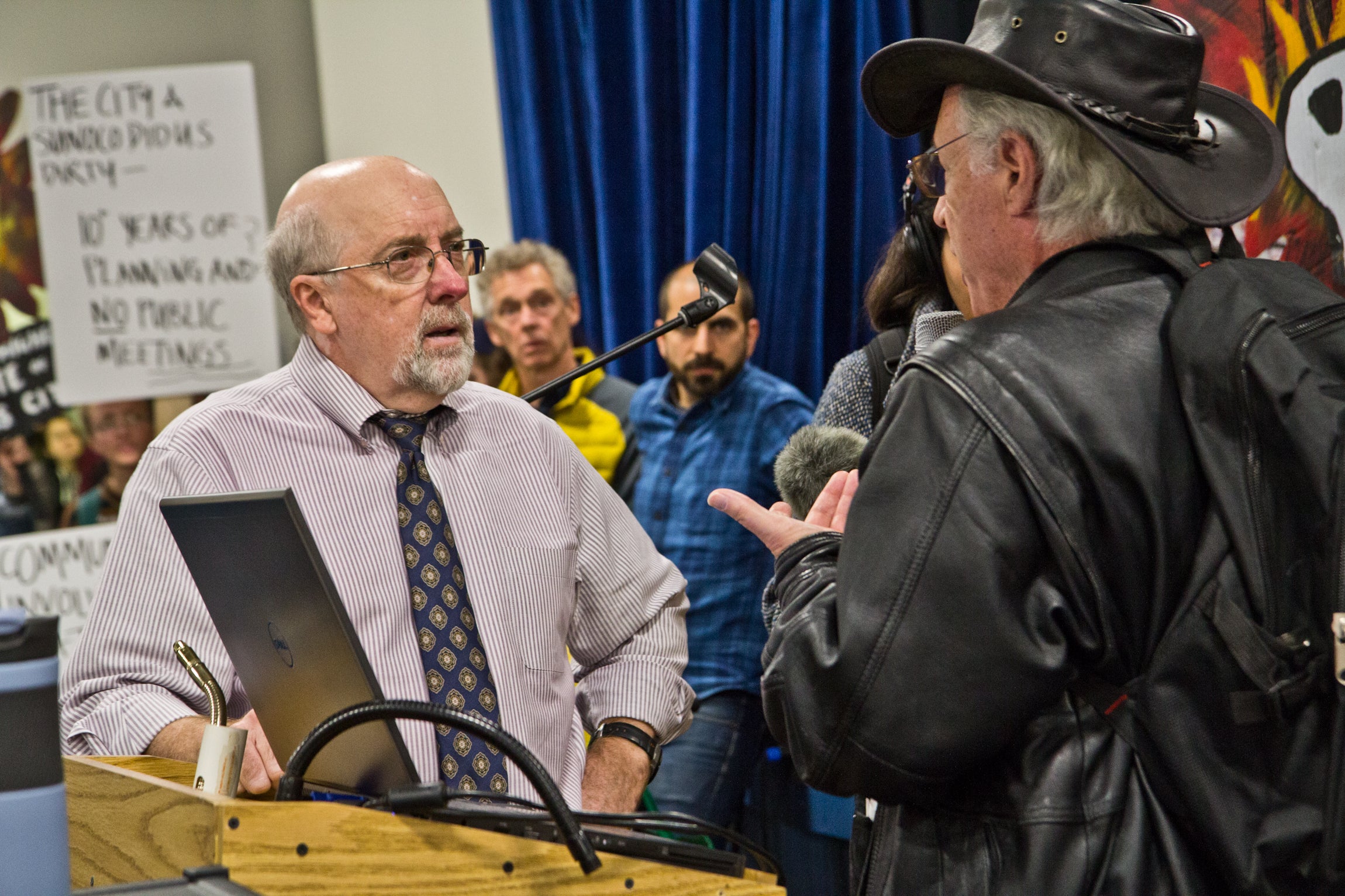
“This is the meeting to learn what’s going on, to be introduced to the whole process, followed by 120 days of a comment period, followed by another public meeting when they can then give additional oral comment, if that’s what they want to do. So they’re preventing it from even starting,” he said.
O’Neill was the only representative of the city at the meeting. No elected officials were present. O’Neill engaged directly with activists until the meeting was dismissed by Evergreen, an hour and a half after it was supposed to start. Cleanup of the site is critical before the land can be reused.
Matt Walker, advocacy director with the Clean Air Council, said Evergreen and the city should have involved the community earlier. The DEP has already approved investigation reports about environmental contamination for 8 out of the 11 sections of the site, and a standard for lead contamination in soil proposed by Evergreen that is at a level twice Pennsylvania’s normal health-based standard.
“Standards were approved for cleanup without any public involvement. There were investigations reports about the level of contamination at the site approved without public involvement. So people are understandably frustrated,” Walker said.
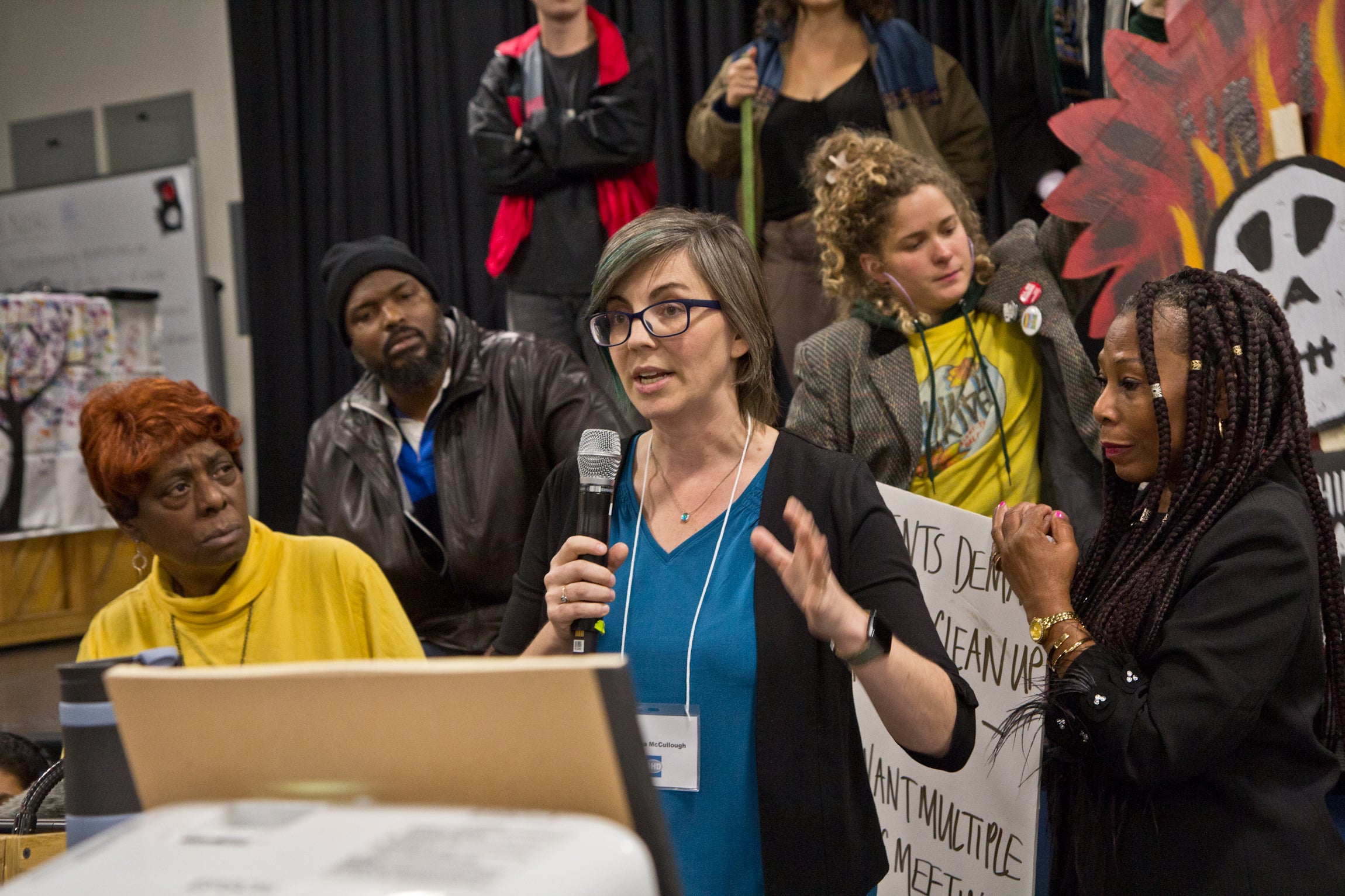
DEP’s David Brown, of the agency’s Bureau of Environmental Cleanup & Brownfields, said the reports released give an understanding of the pollutants on site, but the agency has not made a final decision on the remediation plan. He said the lead standards are consistent to the EPA and more updated than what the DEP currently uses.
With the meeting cancelled, O’Neill said it’s not clear what happens next.

“I thought we asked for as much [meetings] as we could. Can we ask for more? I don’t know. I’m going to have to talk with DEP and to Evergreen,” he said.
DEP representatives at the meeting said the decision was on the city and Evergreen Resources. To which O’Neill then said, “If DEP wants it to happen, it will happen.”
Evergreen representatives at the meeting did not comment Thursday night on future steps.
In a statement issued Friday morning, an Evergreen spokesperson said: “We were disappointed to be blocked from holding a public meeting last night, where we planned to have a productive dialogue with interested public regarding Evergreen’s ongoing remediation activities at the Philadelphia refinery. Our goal was to offer a summary of the process and key results of our work thus far, as well as to take questions from the public, kicking off a four-month comment period before holding another meeting next spring. We have a lot of information to share that will aid the public’s review of the Act 2 Remedial Investigation Reports. This information is always available online at phillyrefinerycleanup.info, and we will work with the City of Philadelphia to explore other ways to share this with the public.”
—
Editor’s note: This article was updated to add a statement from Evergreen Resources.
WHYY is your source for fact-based, in-depth journalism and information. As a nonprofit organization, we rely on financial support from readers like you. Please give today.


